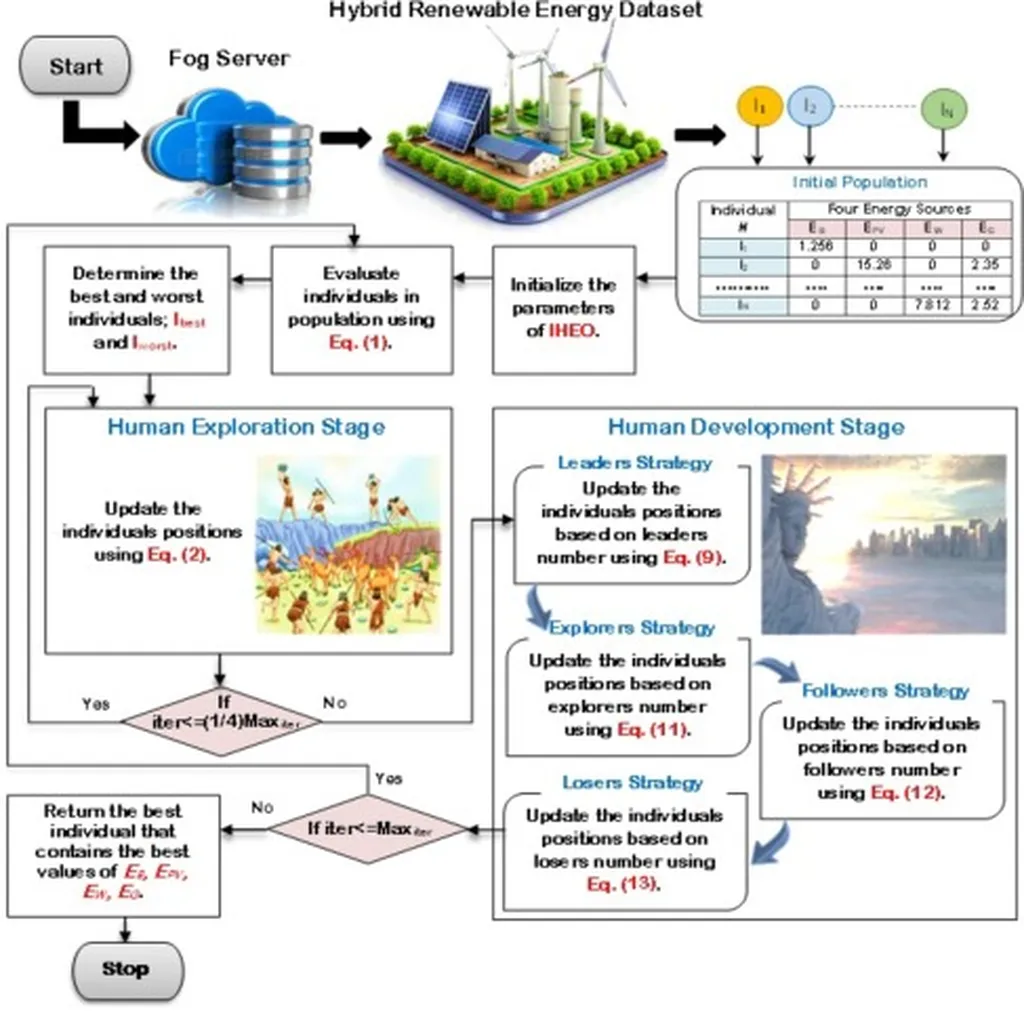In the realm of mechanical design and optimization, a significant breakthrough has emerged from the Department of Mechanical and Electrical Engineering at Zhoukou Vocational and Technical College in China. Led by Y. Lei, a team of researchers has developed an enhanced version of the gray wolf optimization (GWO) algorithm, tailored to tackle constrained optimization problems more efficiently. This advancement, published in the journal *Mechanical Sciences* (which translates to *机械科学* in Chinese), promises to revolutionize the way engineers approach complex design challenges, particularly in the energy sector.
The improved gray wolf optimization (IGWO) algorithm addresses several key limitations of its predecessor. “Our goal was to enhance the algorithm’s ability to explore a wider search space and balance local and global search capabilities,” Lei explained. To achieve this, the team introduced three novel strategies: an individual memory optimization strategy to expand the population’s exploration scope, a position update strategy incorporating differential variation to balance search capabilities, and a discrete crossover strategy to promote information diversity within the population.
The implications of this research are substantial, particularly for the energy sector. Mechanical design optimization is crucial for developing efficient and cost-effective energy systems. Whether it’s optimizing the design of wind turbines, solar panels, or other energy infrastructure, the ability to quickly and accurately find the best possible solutions can lead to significant cost savings and performance improvements.
“By accelerating the convergence performance and improving the overall search capabilities, our IGWO algorithm can help engineers find optimal designs faster and more reliably,” Lei noted. This could translate into more efficient energy generation, reduced material costs, and enhanced sustainability.
The team validated the effectiveness of the IGWO algorithm through several mechanical design optimization cases, including a Z3 parallel mechanism scale parameter optimization case. The results were promising, with the IGWO algorithm outperforming other benchmark algorithms in comparative analyses. This suggests that the IGWO algorithm could become a valuable tool for engineers and researchers working on complex optimization problems.
As the energy sector continues to evolve, the need for advanced optimization techniques will only grow. The IGWO algorithm developed by Lei and his team represents a significant step forward in this field. By providing a more robust and efficient tool for mechanical design optimization, it has the potential to shape future developments and drive innovation in the energy sector.
In the words of Lei, “This research is not just about improving an algorithm; it’s about empowering engineers to push the boundaries of what’s possible in mechanical design.” As the energy sector grapples with the challenges of sustainability and efficiency, the IGWO algorithm could play a pivotal role in shaping the future of energy infrastructure.

